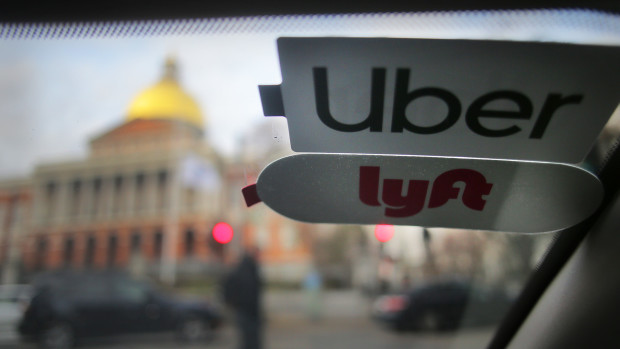
Uber (UBER) -) has built its business on the gig economy, or concept that the people who work for the company are independent contractors rather than employees.
That designation saves the company money as it doesn't have to pay the federally mandated benefits to workers, which are required by law. In turn, the contractors have the freedom to work for multiple companies if they choose.
DON'T MISS: Uber Eats, DoorDash Are In Big Trouble Thanks to a Limiting New Rule
But a recent ruling by the California Supreme Court means the legal door is open for at least one former employee to upend Uber's entire business model.
The California Supreme Court ruled that a 2019 lawsuit brought by Uber Eats driver Erik Adolph, claiming that Uber's drivers are misclassified as contractors rather than employees, can move forward.
Uber can still defeat Adolph in court, but it has lost this opening round.
Uber claimed that by agreeing to work for the company, Adolph waived his right to challenge his employment status.
The court ruled that in order to have a standing to sue "a plaintiff must be an 'aggrieved employee' — that is, (1) 'someone ‘who was employed by the alleged violator’ ' and (2) ‘against whom one or more of the alleged violations was committed."
The court ruled unanimously that Adolph still has a right to sue the company even though he signed an agreement to settle any work-related legal claims in private arbitration.
So Uber will have to face the lawsuit under California's Private Attorney General Act which authorizes employees to file lawsuits to recover civil penalties.
Uber has faced consistent opposition to its labor practices across the country.
Last week, New York City implemented a law raising the minimum wage for its "app-based restaurant delivery workers" to $17.96 per hour from its current average of just $7 per hour.
That number is expected to climb to at least $19.96 per hour by 2025.







